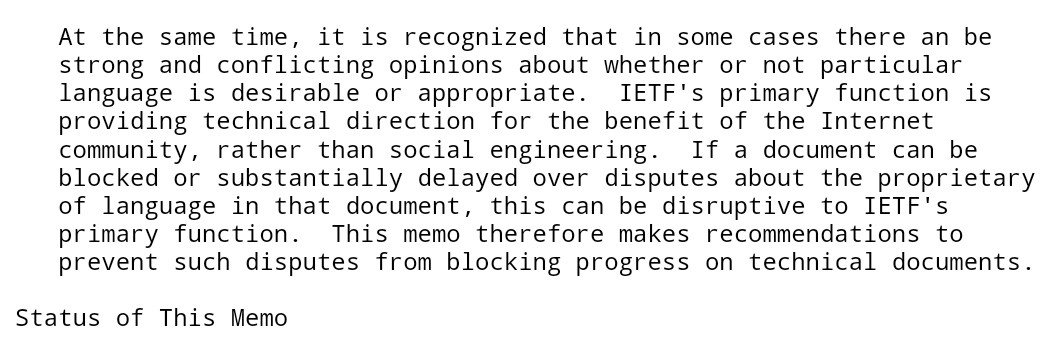Difference between @ICANN and @ietf mailinglists?
Dates I encountered today on #IETF mailinglists:
- January 32 2008
-Jeu 18 March 1904
- 10 May 2036
The things that happen when ppl run their own mailservers 😋🤣😎🙈🤓
#IETF101 #IETFhackathon
Dates I encountered today on #IETF mailinglists:
- January 32 2008
-Jeu 18 March 1904
- 10 May 2036
The things that happen when ppl run their own mailservers 😋🤣😎🙈🤓
#IETF101 #IETFhackathon
I will not start about the different kinds of weird UTC offsets and 👽👾encodings we found. #IETF101
��, 12 1 2006 18:24:14 +0100
iso-f675-5 unknown encoding in message
������, 01 ���� 2002 20:15:33 +0800
x-unknown unknown encoding in message
Fri, 32 Jan 2008 19:05:18 +0900 #justanotherdayattheoffice #igot99problemsanddateparsingis��
#IETF101 #IETFhackathon
iso-f675-5 unknown encoding in message
������, 01 ���� 2002 20:15:33 +0800
x-unknown unknown encoding in message
Fri, 32 Jan 2008 19:05:18 +0900 #justanotherdayattheoffice #igot99problemsanddateparsingis��
#IETF101 #IETFhackathon
• • •
Missing some Tweet in this thread? You can try to
force a refresh









